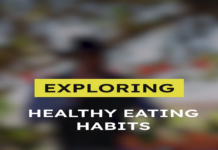Some medical experts on Thursday called for aggressive enlightenment of Nigerians on the need to cultivate the habit of donating blood to save the lives of many accident victims.
They spoke on the sidelines of a two-day Biomedical Science Day and free medical tests organized by the Association of Laboratory Scientists of Nigeria, of the National Orthopedic Hospital, Igbobi, Lagos branch.
Mrs Catherine Ogunlade, a medical scientist at the hospital, in her remarks said that more people should be involved in blood donation, because it saves lives.
“Nigerians do not really buy the idea of voluntary blood donation until when they have someone in dire need of blood.
“We, medical scientists, have been encouraging Nigerians, through many avenues that blood donation to a government hospital can be done for future reference.
“We save lives by donating blood and it does not come with any negative implication. It is lack of education to assume that it has implications,’’ she said.
Ogunlade said that after blood donation, the system has a way of replenishing itself, adding that donors would undergo a status check before they could donate blood.
She made it known that the test that would be carried out will ascertain if a donor can donate or not. If the blood level is low, such a person will not be able to donate, but if in excess, he can donate.
Also speaking, another medical laboratory scientist, Mr Chris Ubi, said that the orthopedic hospital, as a trauma center, was always demanding for more blood in the bank, to shore up its services.
“This is a trauma center and a specialist place which means all over the 36 states of the federation, this is where they bring a lot of accident victims in critical conditions.
Mr Babatunde Adesanya, a blood donor, said that it was a pleasure for him to donate blood to those in need, without any incentive.
“I feel fulfilled donating today although, this is not my first time.
“I enjoy doing it and I advise people to also cultivate the habit of donating their excess blood.
“It is not harmful or stressful, it has its own advantages too,’’ Adesanya, who is also a computer engineer, said.
Also, Mrs Olubunmi Adegbite, a nurse at the National Orthopaedic Hospital, Igbobi, said that from available statistics, the number of hypertension cases are also on the increase.
“We only have few cases of people with hypertension, but not as much as those that are free from it,’’ she said.
One of beneficiaries, Mr Rasheed Ogunyemi, said that he was happy to attend the screening, to know his health status, especially in respect of malaria and blood pressure.
Another beneficiary, Mr Morufu Ganiyu, an artisan, who lives in Somolu, said, “This is a laudable programme. I wish everybody should benefit from it.’’
In her remark, Mrs Kemi Oladipo, narrating her experience, commended the organisers of the programme and asked for more regular screenings exercises.









